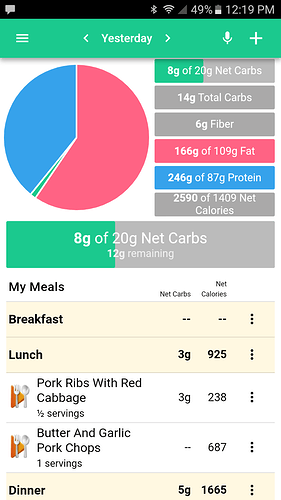have you seen this video Dr Berry on why calories don’t matter.
life should be eat til you get real nourishment for your body to heal from all the nasty crazy chemical foods out there.
eat til satisfied.
put it all back in balance ya know. Anyone can cut kcals and ‘diet’. Everyone here has done that I think LOL but there is a more natural better approach.
here’s the vid. when ya got time to check it out. might help you some or answer some questions for you?




